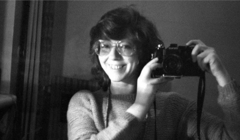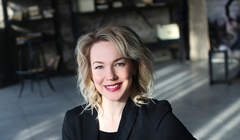
What does it take to build up a business from scratch, go global, make millions of dollars and write a book about it? Oleg Torbosov knows. He’s the owner of the elite international real estate agency Whitewill. In an interview with Kommersant UK, Oleg tells us of his successes in Britain and beyond.
You came to the Moscow real estate market in 2016 and in a few short years, you became the leading vendor of flats and apartments in many of the capital’s new-build developments. How did you pull this off?
It took us three years to become established in the property market. I analysed the its cyclical fluctuations and identified a series of factors which helped us to achieve success.
The first factor is our workforce; we hire fast and focus on team brand and strategy. The most difficult aspect is assembling a team at the start of a project, but we coped with this task with ease. I had already built up my personal brand with 20,000 subscribers on social media, and I quickly brought together a band of five brokers with whom we started to develop the agency. Before we started, I’d been doing market research on real estate and other sectors for over a year, so I had already developed a strategy for finding clients. It was important to find buyers at once. We quickly launched an advertising campaign and in three months, we were negotiating our first deals.
The second factor is appealing visuals. I placed high aesthetic demands on the image the company presents to the market, from the decor of offices and meeting rooms to the smallest detail in typefaces, presentations and websites.
The third factor was the relaxed, unprepared state of the market at that time. No one was expecting a new player to appear.
The fourth was a digital approach. The real estate business is very conservative and reluctant to make use of innovations. Our agency combines extensive systematisation of calls, procedures and regulations with digital technology and a CRM system.
The fifth factor was good fortune; we were lucky with the deals we made and the great clients we met.

Why did you choose the real estate business? What did you study at university?
I studied economics. I chose real estate because my first business was in mortgages. It operated in 48 different cities in various countries. We helped agents and developers negotiate complex mortgage contracts. We gradually gained skills and experience and eventually realised that we could handle all aspects of the business, from site selection to final sale. That’s how we came to the idea of selling real estate ourselves.
You have a very successful personal brand which you are rapidly developing. How can others emulate this?
To create a personal brand, you need to be engaging, clear in your goals and able to communicate something from your professional or private life. You need a platform like a social media blog or YouTube channel to transmit your views and ideas so that people can take them up and share them. You must widen your audience so that as many people as possible hear about you. For instance, I have given speeches at major business forums and universities in Moscow, London (since I opened the agency here) and other cities. I have given over 300 speeches, mostly for Russian-speaking audiences. Attendees of my speeches have become my subscribers; that’s how I’ve built my personal brand.
Where did you learn public speaking?
They call it stage time; the more you speak in public, the better you perform. I watch recordings of my speeches to improve my manner, body language and so on. This is a skill acquired through practice. It also helps that I only ever speak about topics in which I’m well-versed, such as property and investment. I give comprehensive lectures about the markets in different cities, such as Dubai and Moscow and about how to grow a business. This covers staff recruitment, team engagement, motivation programmes, system management and marketing. As I speak from my own experience, I am very convincing.
In 2020 you opened an office in London. Why did you choose the British market? What market segment does your company focus on? Who are your clients?
I first came to London in 2016. I fell in love with the aesthetics and architecture of the city and I thought “Why not open an estate agency here?” The business model is similar to Russia as, unlike the US, estate agents don’t need to be licensed here and the process of interacting with clients works in roughly the same way. A lot of new housing is being built in the centre, from whole blocks in Battersea to more scattered developments. A week before the pandemic, we opened a small office in Chelsea and launched an advertising campaign, only it wasn’t for the local market. We focused on foreign buyers from the Middle East, Europe, Africa (many clients are from Egypt), Turkey and China. But the lockdown meant they couldn’t come to view the flats. Our backlog of frozen deals grew and very few were actually finalised. So we refocused our advertising on the domestic UK market and began to work more with foreigners who were already in London. We’re currently closing around four to five deals a month. For every 100 sales we make in England, only 20% of the buyers are British and the other 80% are foreigners, from Europe (French, Italians and Spaniards), Egypt, Turkey and the UAE.
Our company specialises in new-builds located in the centre of London (zones 1-3). Our competitive edge is that our clients can see the whole property market rather than just a few isolated sites. Major British companies prefer to exclusively sell their own developments and studiously avoid offering other people’s. We, on the other hand, give our clients a full choice by compiling lists of all the suitable properties in central London, irrespective of the developer. These include projects still in construction. Right now, we’re offering clients over 200 new-builds, while traditional agencies only have 70-80.
Why don’t you live in London? How profitable is business here? Is your presence in the UK more a question of prestige?
Most of the time, in winter and autumn, I live in Dubai. This is for family reasons, as my son is two and a half and Dubai is safe and has a mild, resort-like climate which is more suitable for small children. Each year, I spend a month in the US and, in the summer, I go to Russia. I live in London for a month, usually in the spring. Incidentally, I’m planning to come in mid-April. I like being in London; I soak up the atmosphere, investigate new projects, visit housing complexes, talk with developers and spend time with my team.

The London office is entirely self-sufficient and has turned a profit from its very opening, paying 30-40% dividends on capital investment. We’re currency expanding; we’ve moved to a spacious new office at Marble Arch, we’ve taken more brokers onto our team and we’re boosting sales volumes and the number of our clients.
How large is your workforce?
Our total workforce internationally is 550 people. We have 20 at our London office, 15 of whom are brokers. We outsource programmers, designers and HR specialists as their services are very costly in England. Our business in Britain is small as, due to local factors, we sell fewer properties here than in other countries. For example, while in Dubai a transaction can take a week from the moment the buyer views the property to payment and transfer of ownership, in Moscow and Miami exchanging contracts can take two to three weeks, but in London, the lengthiest and most technically complex transactions, such as AML procedures and engaging solicitors, take two to three months. During this time the client may change their mind and decide not to go ahead with the purchase.
They say the housing shortage in Britain is set to continue. Does demand really exceed supply?
I’d say we have a little excess supply, as completed housing complexes are unable to sell all their apartments. As I see it, demand is affected by a combination of factors, such as barriers to the inflow of capital, a heavy tax burden, a high cost of living and elevated property prices.
Are you considering any other British cities?
I am interested in large, dense markets. Manchester and Liverpool are much smaller in scale and property prices are significantly lower. Besides, we don’t aim to be a one-stop shop for the entire British property market. Just as Bentley doesn’t produce budget cars, we prefer to concentrate on our own niche in the market, which we know well.
What are your selection criteria for recruitment?
We make fewer requirements of candidates in London than we do in Dubai, where we insist on only the highest levels of knowledge and experience in real estate. But in Dubai there are many agents and brokers, so we can pick and choose, while the choice in London is sparser, as it’s a complex profession. This means we're ready to experiment here and hire people who have had less involvement in the property market. Of course, we have managed to earn ourselves a reputation in the London market, as we provide a large flow of clients from different countries which are converted into sales. This means more and more experienced agents want to come to work for us. The main criteria are to know and understand the city well (the specifics of individual projects can be learned), and complete commitment; they must work solely for us without anything on the side, they need a good command of English and they must be friendly and effective communicators.
Have you received offers for the company? What’s Whitewill’s current level of capitalisation?
Before the pandemic, we were in discussions with a major British real estate firm which wanted to buy our business together with our brokers to break into the Moscow and Dubai markets (incidentally, they still haven’t done this). However, after the pandemic, these discussions were not resumed. Although people can speculate as much as they like about a company’s value, capitalisation is only determined at the moment of sale. Since we are a private company, we can only estimate an approximate figure, based on revenue. Last year, our group of companies sold property to the value of $1.7 billion, for which the agency’s remuneration stood at around 3%, or roughly $50 million. How should a real estate business be valued? Maybe at three or four times the annual revenue, maybe five. The price also depends on who is interested in purchasing the business. So the company may cost roughly $100-150 million, or maybe $200 million. But we’re not considering selling it.
In what cities and countries can we buy property with Whitewill? What are the company’s plans?
As well as London, the company currently has offices in Moscow, Abu Dhabi, Dubai and Miami. This year we’re planning to open an office in New York.

Tell us about your greatest sale in Britain.
Our largest transaction in London was the £11 million sale of a 200 sq m (2,150 sq ft) apartment in the Park Modern Building near Hyde Park, which was still in construction. The buyer flew in from China. We’re now negotiating several transactions worth £20-30 million each but they still haven't been finalised.
If you could choose a mentor from among world business leaders, who would it be?
If I could choose from among modern entrepreneurs, then in my way of thinking and life philosophy, I feel closest to the venture capital investor Oskar Hartmann. He’s one of the top 30 unicorn hunters; he has over 70 companies in his portfolio, 14 of which have achieved a capitalisation of over $1 billion. He invests in early-stage startups in European and Asian markets and seeks out people and ideas about to ‘skyrocket’. I like his intuition and professionalism and how, despite owning such a major company, he lives so simply and effortlessly, running projects for charity and spending quality time with his four children. I have business skills, but I'd like to learn more about Hartmann’s soft skills; how he interacts with people, chooses partners, builds up teams and motivates them.
Your book Oleg's Journey is very accessible and engaging. What readership did you have in mind when you were writing it? What can it teach us?
It’s a business novel in the non-fiction genre, based on real events, with photos and links to the music I listened to at different times in my life. It tells the story of the trials I went through to become an entrepreneur capable of building up a large company, earning well and living happily. My book is a reflection on my life. In part, I wrote it for my son, so he can read about the stages his dad went through. It would be useful for entrepreneurs who are just starting out, are still finding their feet and have lost faith in themselves. Also, many teenagers of the age of 13-14 read it, as they used to read Mark Twain’s The Adventures of Tom Sawyer. You might say my book is about the Tom Sawyer of our time. It recently came out in English and is available on Amazon.
You often talk about your son. Would you like him to be proud of you?
Of course, all parents want their children to respect them and be proud of them. When kids come along, your frame of reference changes drastically. You feel more responsibility, you begin to take fewer risks in certain areas and be a bit more thoughtful about certain things in life, as there are people who truly need you.






